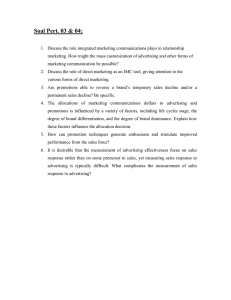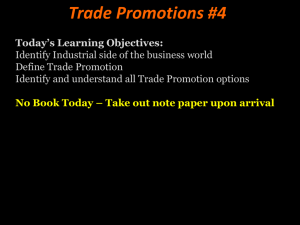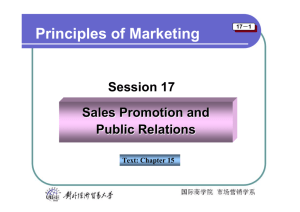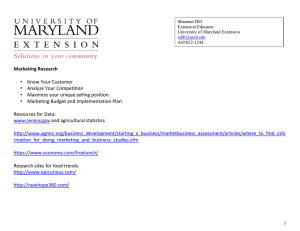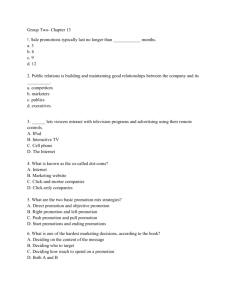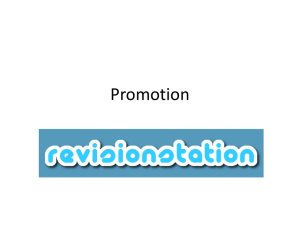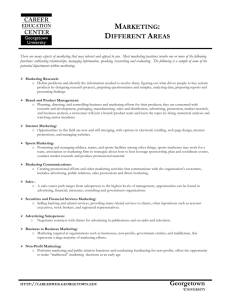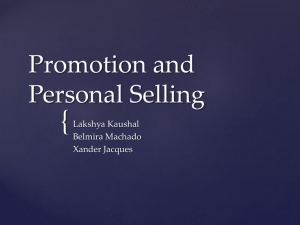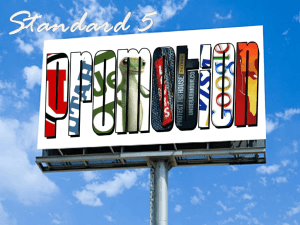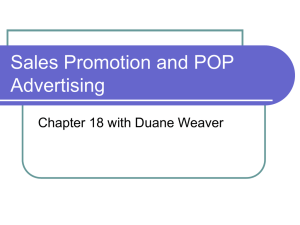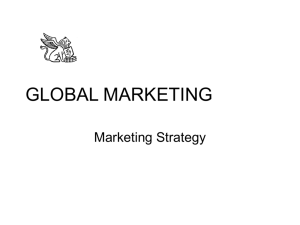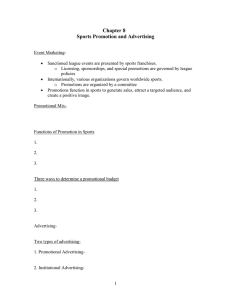Chapter 11 Quiz!!! Sydney Hymer, Morgan Green, Caroline
advertisement
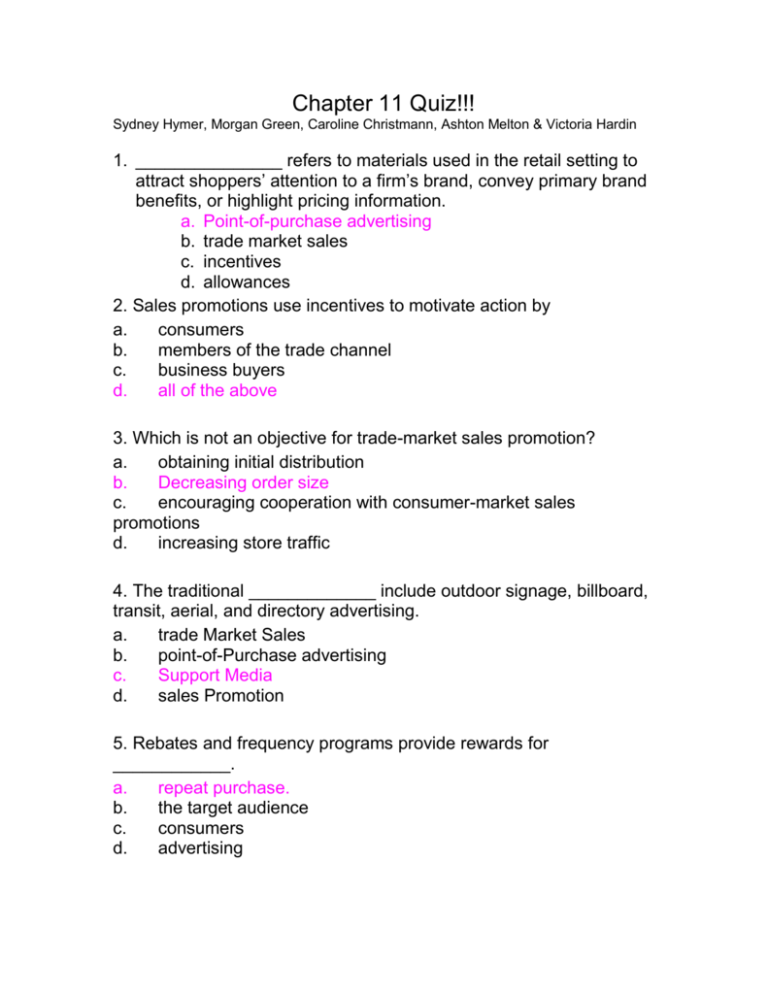
Chapter 11 Quiz!!! Sydney Hymer, Morgan Green, Caroline Christmann, Ashton Melton & Victoria Hardin 1. _______________ refers to materials used in the retail setting to attract shoppers’ attention to a firm’s brand, convey primary brand benefits, or highlight pricing information. a. Point-of-purchase advertising b. trade market sales c. incentives d. allowances 2. Sales promotions use incentives to motivate action by a. consumers b. members of the trade channel c. business buyers d. all of the above 3. Which is not an objective for trade-market sales promotion? a. obtaining initial distribution b. Decreasing order size c. encouraging cooperation with consumer-market sales promotions d. increasing store traffic 4. The traditional _____________ include outdoor signage, billboard, transit, aerial, and directory advertising. a. trade Market Sales b. point-of-Purchase advertising c. Support Media d. sales Promotion 5. Rebates and frequency programs provide rewards for ____________. a. repeat purchase. b. the target audience c. consumers d. advertising 6. Objectives for trade-market sales promotions include: a. increasing order size b. increasing store traffic c. obtaining initial distribution d. all of the above 7. Coupons, price-off deals, phone and gift cards, and premiums (free and self-liquidating) and advertising specialties provide obvious a. incentives for purchase b. trade market sales c. vertical cooperative advertising d. allowances 8._____ marketing is becoming commonly adopted by marketing firms as the primary promotional style. a. Retail b. Segmented c. Direct d. Guerilla 9. Short-term promotional displays are used for: a. 1 year or less b. 2 years or less c. 6 months or less d. 6 months or more 10. Risks of sales promotions include: a. creating a price orientation/ lowering brand image b. borrowing from future sales c. alienating customers d. time and expense e. all of the above are risks of sales promotions Answers 1. A 2. D 3. B 4. C 5. A 6. D 7. A 8. D 9. C 10. E
